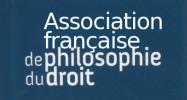Paper's abstract
Philippe
Blondel,
Which jurisprudence for the new law on religious signs ?
Since 1989, pupils wearing, in French Republican schools, clothes or signs obviously signalling their religious creed have been at the roots of essential issues. The Iranian revolution, in particular, started more or less obvious assertion of beliefs and faiths. The media revealed the crisis, commissions wrote white books and conclusions. A law appeared necessary : hence the law of 15 March 2004. Evidently, it wanted to break away from the qualified doctrine of the Conseil d'État, marked by its decision of 27 November 1989 and consolidated by a series of rulings following this line. However, will the new law be in a position to sort out most worrying behaviours ? Of course, the debates allowed to breathe new life into the principle of laïcité at school, a revisited and enriched principle. A balance is still to be found between this principle, the freedom of conscience and the educational duties resting on parents and/or representatives of pupils. But what is to be understood by signs or dress obviously showing off a religious creed? This obviously lets us anticipate debates and what is to be understood by religious creed? Here also, tricky questions may arise since, until this day, neither the Conseil d'État, nor the European Court for Human Rights have taken a definite stand on the complex issue of religion. There is also the active repentance of the law-maker, the required dialogue, till where, between who and who, and if it fails what will become of the pupil, here also an obligation to find a replacement mean rests on the State, if one may say so. In short, many questions remain, the law as it was promulgated will shift debates that will endure. Tomorrow, administrative courts, among others, will have to settle difficulties that will no doubt arise, the responsibility of the schoolmasters remaining heavy even when they expected from a clarifying law, which purpose was a better legal security and predictability.
Key Words : Conseil d'État, freedom of conscience
t. 48, 2004 : p.197-219
